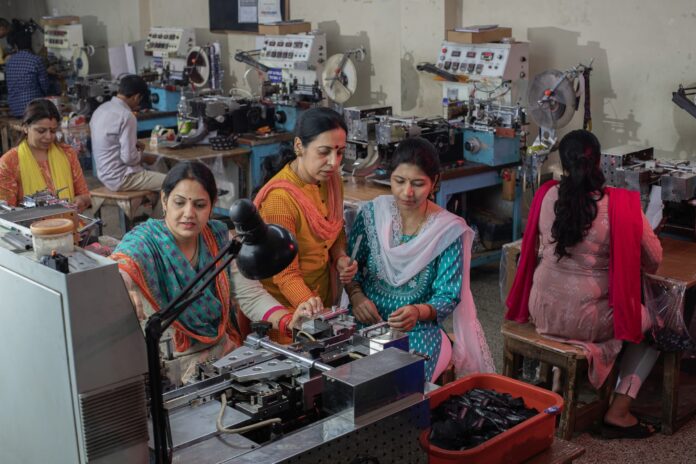When industrialization increases, the poor, farmers, and Dalits benefit the most. Those who have read Baba Saheb Ambedkar will know this; if not, they should read him. Baba Saheb believed that industrialization plays a crucial role in the empowerment of Dalits. He observed that the poor, Dalits, and the deprived do not have enough land. Baba Saheb used to say that when factories are set up, Dalits and the deprived get opportunities. This is why he urged Dalits to learn technical skills,” said Prime Minister Narendra Modi in Haryana on September 25, 2024.
“जब औद्योगिकरण बढ़ता है, इसका सबसे अधिक फायदा गरीबों को, किसानों को, दलितों को होता है । जिन्होंने बाबासाहेब अंबेडकर को पढ़ा है, पढ़ा न हो तो पढ़ लेना, बाबा साहब मानते थे कि दलितों के सशक्तिकरण में औद्योगीकरण की बड़ी भूमिका है । वे देखते थे कि गरीबों के पास, दलितों के पास, वंचितो के पास पर्याप्त जमीन नहीं होती…बाबासाहेब कहते थे कि जब फैक्ट्रियां लगती हैं तो दलितों-वंचितों को अवसर मिलता है। इसलिए बाबा साहब दलितों से टेक्निकल स्किल सीखने के लिए कहते थे,” (प्रधानमंत्री नरेंद्र मोदी का 25 सितंबर 2024 को हरियाणा के सोनीपत में दिया गया वक्तव्य।)
Industrialisation is an economic phenomenon that creates numerous infrastructures where laborers work to produce sellable products.
Industrialization can help eradicate several social evils from Indian society, such as restrictions on women’s career advancement, illiteracy, and the persecution and marginalisation of Dalits, Adivasis, and women in isolated environments, such as rural villages.
India lacked a comprehensive and inclusive phase of industrialization until recently. The 1991 economic liberalization sparked the development of industrial infrastructure in select states, prompting significant migration from landlocked, mountainous, and Naxal-affected regions. However, since 2019, India has witnessed a transformative shift towards comprehensive and inclusive industrialization, characterised by:
- Nationwide 4G internet penetration
- Infrastructure development in strategic locations: Andaman and Nicobar Islands, Lakshadweep, North Eastern states, Ladakh, and Jammu & Kashmir
- Expanded financial inclusion through increased bank account holders
- Extensive electrification and tap water connections
- Growth of e-commerce, online education, and digital services
- Enhanced connectivity across the country
Industrialization-induced infrastructure enables marginalised communities to access job opportunities in other locations, thereby reducing reliance on their home state for employment. Infrastructure creates alternative prospects for life.
The lack of infrastructure hinders marginalised communities from accessing courts, police stations, and even their relatives during emergencies.
Industrialisation generates numerous employment opportunities, increases efficiency, and fosters self-sufficiency. The social impact of industrialisation has fueled efforts to empower married women, transgender individuals, and economically vulnerable populations.
Industrialisation will empower weaker sections to move away from traditional religious centres, conservative family values, and social rituals that perpetuate the submissive behaviour of women and SCs/STs.
However, industrialization without liberalization and globalization is harmful to weaker sections and beneficial to dominant ones. Therefore, the weaker sections should be aware of the type of industrialization being promoted.
– –Dimple Kumar writes on socio-political issues related to the crucial events of our times. For further enquiries-dimple1889h@gmail.com


